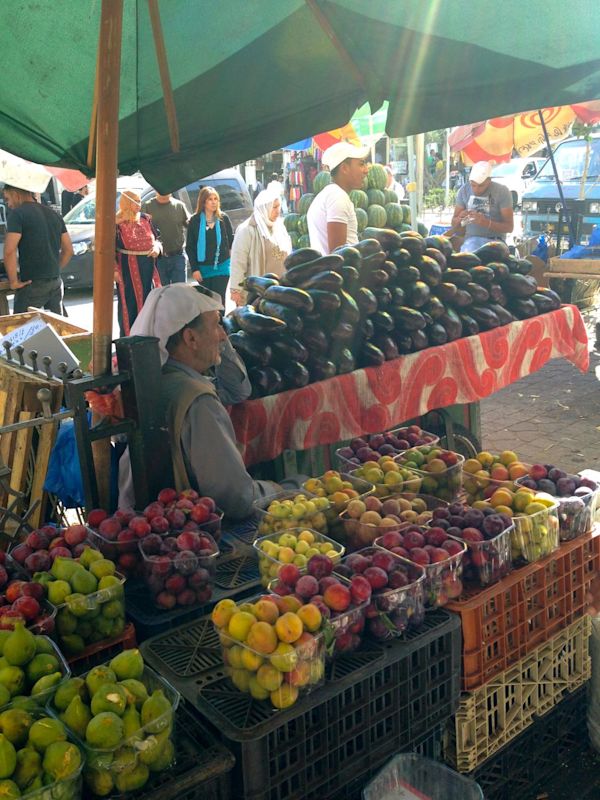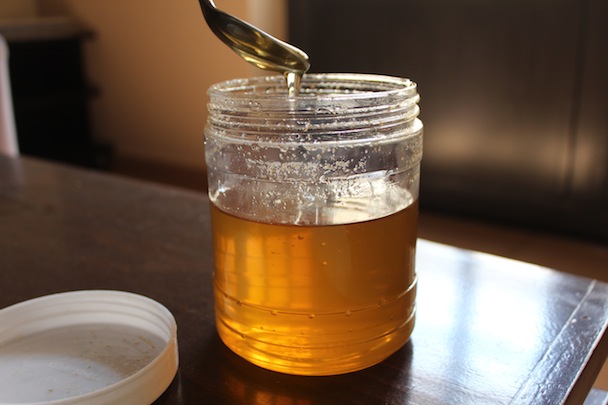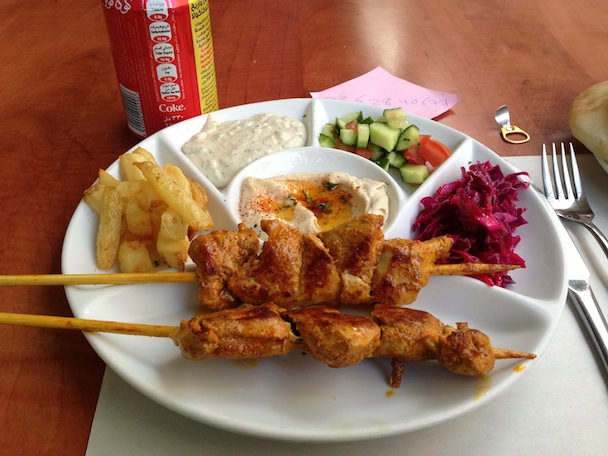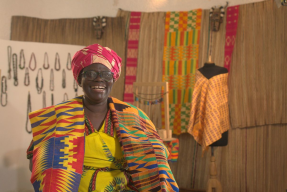
I have never met a people more attached to their land than the Palestinians. In my every day interactions with locals, I have come to sense a deep cultural and spiritual connection between them and the earth, with roots that run as deep as those of the ancient olive trees for which they are most known.
This attachment manifests itself tremendously in the quality of the food. I’ve been in Palestine for over a month now, and my diet has almost entirely consisted of food that is organic, fresh, and grown locally; suffice it to say that there will probably be some cringing on my next trip to Safeway when I return home. One day, feeling slightly homesick, I caved to the call of a box of Cheez-Its sitting on the shelf of a majority import-stocked supermarket—but when sitting next to a plate of homegrown carrots and hand made hummus, it turns out that it’s pretty hard to reach for the glowing orange crackers. At no point in time have fresh fruits and veggies been out of reach; this place is like one big never-ending farmers’ market.

The deep connection between the people and the land stems at least in part from the fact that farming is the main source of income for many Palestinians. Unfortunately, the size of the land that is available to Palestinians to grow on is diminishing as a result of the political situation, and there is a tangible fear that their culture and livelihoods are diminishing with it. I’ve had the chance to visit over twenty Kiva borrowers in Palestine so far, some of whom are farmers and the geniuses behind the flavorful and succulent victuals that fill the carts of local street vendors. Jenin, a city in the northern West Bank, was one of my favorite places to visit borrowers—most likely because I have a soft spot for farmers and because they give the best kinds of (edible) souvenirs. Jenin is luscious and green, and the people I met there were very kind and open hearted.
Taleb, the man featured below, is married with a baby boy. He used his loan from Kiva’s partner FATEN to cover and irrigate his greenhouse, where he grows tomatoes with the skill of seven Old Macdonald’s. He told me that his crop makes him a good profit most days, but because the market is flooded with cheap goods from Israel, it is challenging for people like him to sell their products at a decent price.


I also had the opportunity to visit Tulkarem, where I met Jihan, who is both a horticulturalist and a mother of five children. She took a loan from the Arab Center for Agricultural Development (ACAD), another Kiva partner, to buy new pipes, a pump, and a water tank in order to rehabilitate the irrigation network for her thyme farm. The new irrigation system will increase efficiency and allow her to grow production. Jihan grows the thyme, collects it, dries it, and then sells it on the local market.


The thyme is commonly mixed with toasted sesame seeds and other spices to create an aromatic mixture known as za’atar. I can tell you from experience that za’atar+ olive oil+ warm bread from the oven = a deadly delicious combination. Jihan was able to start her thyme farm with seed money from a beekeeping business, which she continues to run in parallel. Never one to pass on a sweet deal, I bought some honey from her… straight from the hive. If you put your ear to the jar and use your imagination, you can still hear the bees buzzing. Doesn’t get fresher than that.
 Not to be confused with Honey Boo Boo
Not to be confused with Honey Boo Boo
 Not to be confused with Honey Boo Boo
Not to be confused with Honey Boo Boo Farmers such as Taleb and Jihan carry with them the rich knowledge and traditions associated with land cultivation that will be passed on to their children and future generations. However, farmers are not the only magic-makers behind Palestinian cuisine. Many of the people I’ve met in cities grow their own vegetables in their home gardens and plots of land, such as olives, oranges, zucchini, and tomatoes; some even raise livestock as well.
I will leave you with pictures of mouth-watering dishes that I’ve enjoyed, prepared with these farm fresh ingredients.

 Maqloobeh, a traditional Palestinian dish with chicken, rice, and vegetables
Maqloobeh, a traditional Palestinian dish with chicken, rice, and vegetables

 Maqloobeh, a traditional Palestinian dish with chicken, rice, and vegetables
Maqloobeh, a traditional Palestinian dish with chicken, rice, and vegetables
Hungry yet?
PREVIOUS ARTICLE
Innovative Food Business Finds Support Online from Mentors and Lenders →NEXT ARTICLE
Kiva Zip holds Information Session in Pittsburgh →













